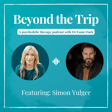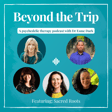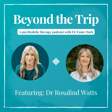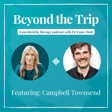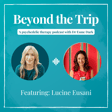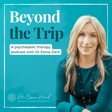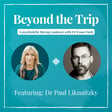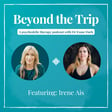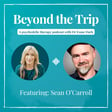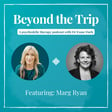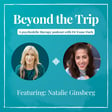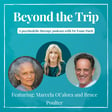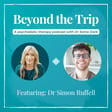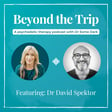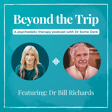
Psychedelic Therapies and Indigenous wisdom: Challenges and opportunities for collaboration
Welcome to Beyond the Trip Podcast. In this episode I am joined by IPAT (indigenous psychedelic-assisted therapies). IPAT is dedicated to supporting the accessibility and therapeutic use of plant medicines for Indigenous peoples. Their vision is to create a culturally safe model of psychedelic-assisted therapy (PAT) that honors the Indigenous wisdom which has guided the use of plant medicines for thousands of years.
IPAT’s purpose is to develop a psychedelic-assisted therapy model that incorporates Indigenous ways of knowing, being, and doing, emphasizing the importance of healing within community. By placing cultural safety at the forefront, IPAT aims to ensure this model is not only accessible to Indigenous peoples but also beneficial and accessible for all.
Jem Stone is a First Nations Woman, Educator and Wellness Practitioner with mixed heritage from around the globe who is passionately integrating original knowledge into education and wellness spaces through connection and decolonised learning methods.
Kirt Mallie is a proud Mualgal man, an Indigenous Therapist, Cultural Educator and Spiritual Teacher. Kirt is a co-founder of IPAT. He was one of the therapists on the Psilocybin-Assisted Supportive Therapy in the treatment of prolonged grief trial.
Dr Bianca Sebben is a Clinical Psychologist based in Brisbane, Australia with a special interest in complex trauma, dissociative disorders including Dissociative Identity Disorder, and working with Aboriginal and Torres Strait Islander peoples.
In this episode we talk about IPAT’s recently published paper, the importance of inclusion of indigenous voices in this emerging space, cultural safety in psychedelic therapy, challenges with the medical model of distress, and the importance of collaboration, to bring together different perspectives together in this field.
IPAT website: https://ipat.au/
Psychedelic Therapies and cultural responsiveness: A call for Aboriginal and Torres Strait Islander engagement in Australian clinical trials and practice https://www.sciencedirect.com/science/article/pii/S1326020024000761
Closing the Gap: https://www.closingthegap.gov.au/
Power, Threat, Meaning Framework: https://www.bps.org.uk/member-networks/division-clinical-psychology/power-threat-meaning-framework
